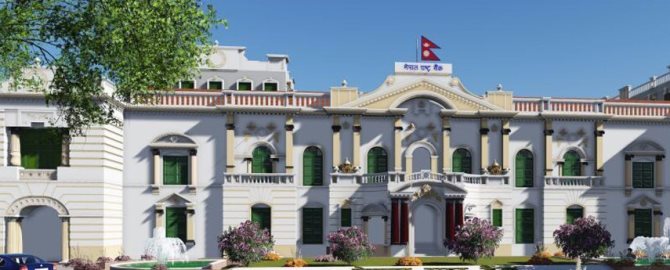
The consumer price inflation has declined in the second month of the current fiscal year 2021/22.
According to the latest current macroeconomic and financial report published by Nepal Rastra Bank (NRB), the year-on-year (y-o-y) consumer price inflation stood at 3.49 per cent in the first two months of the current fiscal year compared to 4.52 per cent a year ago.
Food and beverage inflation stood at 2.57 per cent whereas non-food and service inflation stood at 4.22 per cent in the review month.
The price of ghee and oil, meat and fish, non-alcoholic drinks, tobacco products and transportation sub-categories rose by 28.91 per cent, 10.66 per cent, 10.25 per cent, 9.99 per cent and 9.92 per cent respectively on y-o-y basis.
In the review month, the Kathmandu Valley, Terai, Hill and Mountain witnessed 3.23 per cent, 3.65 per cent, 3.96 per cent and 3.51 per cent inflation respectively.
Inflation in these regions was 3.66 per cent, 4.71 per cent, 4.73 per cent and 4.51 per cent respectively a year ago.
The y-o-y wholesale price inflation stood at 3.11 per cent in the review month compared to 8.80 per cent a year ago.
The y-o-y wholesale price of consumption goods has declined by 0.73 per cent while that of intermediate goods and capital goods increased by 4.94 per cent and 6.21 per cent respectively.
The wholesale price of construction materials has increased by 12.03 per cent in the review month.
The y-o-y salary and wage rate index increased by 4.84 per cent in the review month.
The remittance inflow has declined by 6.3 per cent to Rs. 155.37 billion in the review period against an increase of 8.1 per cent in the same period of the previous year.
In the US dollar terms, remittance inflow has decreased by 5.8 per cent to 1.31 billion in the review period against an increase of 2.6 per cent in the same period of the previous year, NRB said.
Number of Nepali workers (institutional and individual – new and legalised) taking approval for foreign employment increased significantly to 38,492 in the review period. It had decreased by 99.2 per cent in the same period of the previous year.
Similarly, the number of Nepali workers (renew entry) taking approval for foreign employment increased significantly to 22,976 in the review period. It had decreased by 86.5 per cent in the same period last year.
Net transfer decreased by 6.4 per cent to Rs.171.92 billion in the review period. Such a transfer had increased by 4.4 per cent in the same period last year.
BoP deficit crosses Rs. 100 billion
Meanwhile, Nepal’s current account remained at a deficit of Rs. 106.75 billion in the review period against a surplus of Rs. 25.16 billion in the same period of the previous year.
In the US dollar terms, the current account registered a deficit of 901.5 million in the review period against a surplus of 210.0 million in the same period last year.
In the review period, capital transfer decreased by 36.3 per cent to Rs. 1.25 billion and net foreign direct investment (FDI) increased by 24.6 per cent to Rs. 3.04 billion.
In the same period of the previous year, capital transfer and net FDI amounted to Rs. 1.96 billion and Rs. 2.44 billion respectively.
In the meantime, balance of payments (BOP) remained at a deficit of Rs. 83.41 billion in the review period against a surplus of Rs. 67.63 billion in the same period of the previous year.
In the US dollar terms, the BOP remained at a deficit of 704.3 million in the review period against a surplus of 566.2 million in the same period of the previous year.
Foreign currency reserve shrinks to Rs. 1,306 billion
The gross foreign exchange reserves decreased by 6.6 per cent to Rs. 1,306.95 billion in mid-September 2021 from Rs. 1,399.03 billion in mid-July 2021.
In the US dollar terms, the gross foreign exchange reserves decreased by 5.2 per cent to 11.14 billion in mid-September 2021 from 11.75 billion in mid-July 2021.
Of the total foreign exchange reserves, reserves held by NRB decreased by 7.7 per cent to Rs. 1148.69 billion in mid-September 2021 from Rs. 1244.63 billion in mid-July 2021, said NRB.
Reserves held by banks and financial institutions (except NRB) increased by 2.5 per cent to Rs. 158.27 billion in mid-September 2021 from Rs. 154.39 billion in mid-July 2021.
The share of Indian currency in total reserves stood at 24.2 per cent in mid-September 2021.
Based on the imports of two months of 2021/22, the foreign exchange reserve of the banking sector is sufficient to cover the prospective merchandise imports of 8.6 months and merchandise and services imports of 7.8 months.
Source : TRN,






